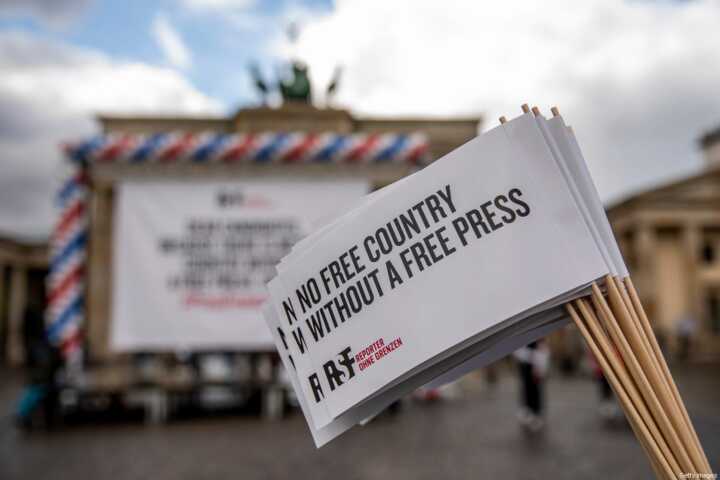The last decade has seen an “appalling” suppression of journalistic freedoms which threatens the core of democratic governance globally, according to Reporters without Borders (RSF).
The media watchdog just published its latest World Press Freedom Index which shows a worrying trend: the steady erosion of press freedoms over the past decade, driven by democratic backsliding and increasing political interference.
RSF’s findings reveal that more than half of the world’s population now lives in countries marked “red” on the press freedom map, indicating “very serious” media restrictions. Meanwhile, only eight percent of the global population lives in countries with “good” or “satisfactory” ratings.
In regions once seen as democratic strongholds, such as Europe and parts of Asia, governments have increasingly undermined journalistic independence, the NGO found. States in Eastern Europe and Central Asia have fallen down the rankings following the “spectacular mimicry of Russian repressive methods,” including Georgia, Azerbaijan, and Kyrgyzstan.
Concentrated media ownership by oligarchs and politically connected elites further stifles editorial freedom, it claims.
The biggest threat to the free press are rising levels of political interference in journalism. Governments around the world have used a mix of disinformation campaigns, legal harassment, and intimidation to control the narrative, according to the report.
Countries like Turkey, Belarus, and Russia stand out for their aggressive persecution of independent media. In Turkey, journalists critical of President Erdoğan face imprisonment, while in Russia, the state has virtually eliminated independent reporting, with journalists risking retaliation for dissent.
Even in established democracies like the United States, which dropped 10 places in the rankings, RSF notes mounting political pressure on journalism. While direct violence is less common, politicians increasingly attack the press, eroding public trust and diminishing the media’s role in holding power to account.
RSF also warns of the rise in government surveillance and cyber threats against journalists. States are using sophisticated tools to monitor, hack, and harass reporters, creating a chilling effect on press freedom. In this environment, journalists must constantly safeguard their privacy and security, further complicating their work.
Social media platforms have added another layer of difficulty by amplifying disinformation and political polarization. The NGO points out that authoritarian regimes exploit these platforms to delegitimize independent journalism, making it harder for credible news sources to reach audiences.
RSF’s 2024 report urges immediate global action, emphasizing that press freedom is directly tied to the health of democracy. As more countries slip into authoritarianism, the free press becomes one of the first casualties, leaving societies vulnerable to corruption and unchecked state power. The report calls for stronger protections for journalists, efforts to curb political interference, and renewed trust in the media.
Without such measures, both journalism and democracy face an increasingly uncertain future.
Read more similar news:
Comments:
comments powered by Disqus
































